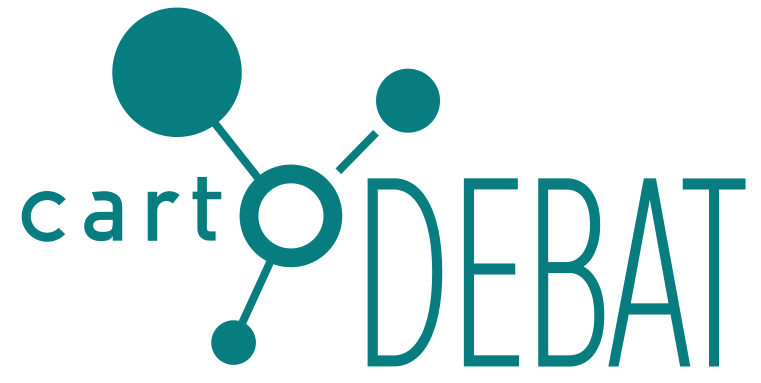Ethics and Humanism
Ethical reflection upon challenges raised by Artificial Intelligence (AI) and Neurosciences (NS) relies on a background understanding of what it means to be human, and thereby on the notion of “Humanism”. However, such a necessary background is far from ready-made, available for straightforward ethical orientation. “Humanism” or “what does it mean to be human” are extremely tricky questions at the time of NS and AI.
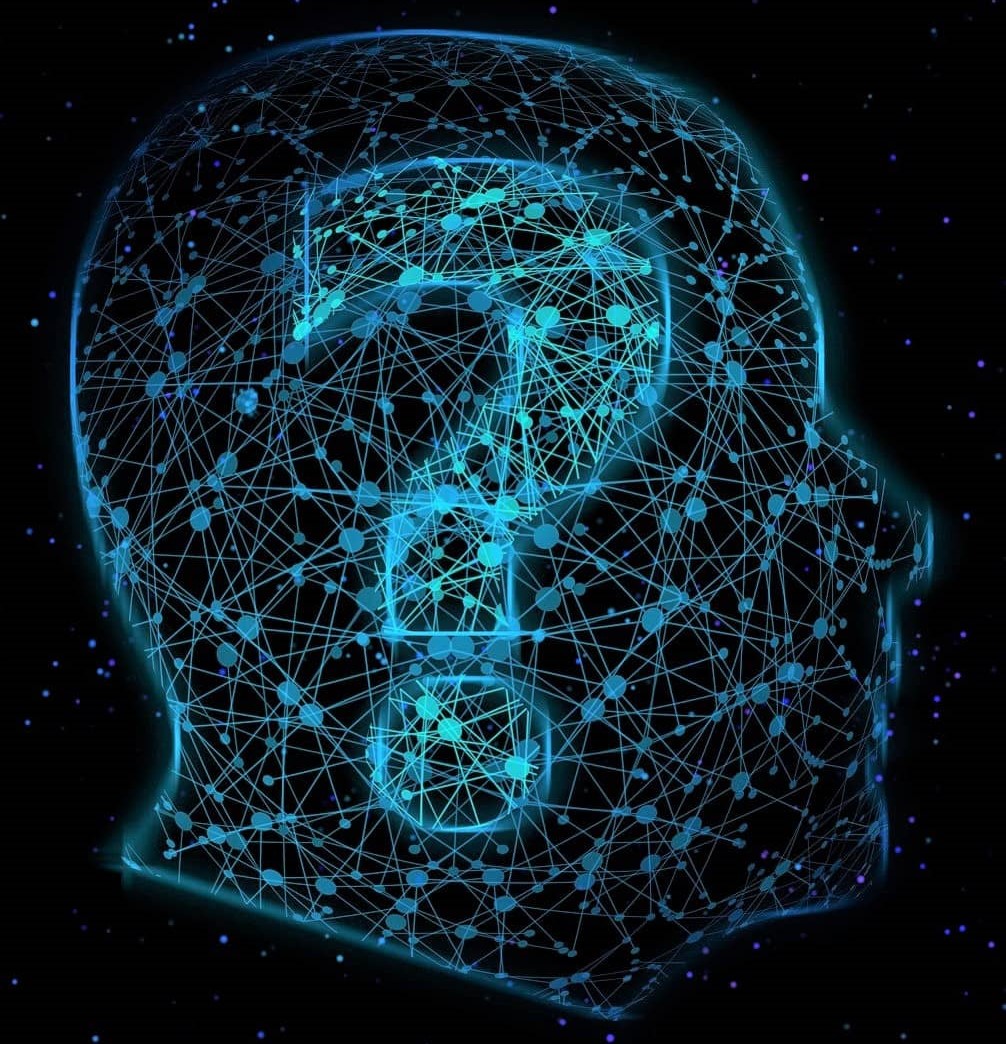
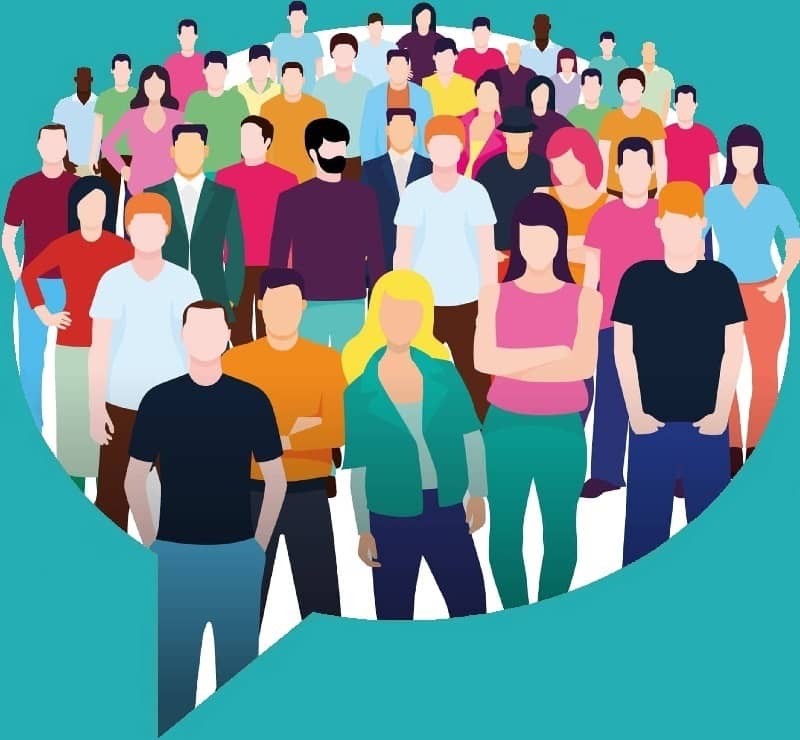
A pressing need for the involvement of societal actors
How then to settle meanings to “human” or “humanism” that would be robust enough to support ethical effort properly? It is quite clear that the exploration of the notion of humanism requires mobilizing academic experts from multiple disciplinary horizons (AI, NS, anthropology, philosophy, ethics, political science, economics, law …). Nevertheless, such an interdisciplinary interweavement (among scholars and researchers), which already constitutes a challenge in itself, may not suffice. In fact, although academic insights are indispensable to correctly thinking humanism at the time of NS and AI, one can exclude neither the relevance of common sense and the ordinary life point of view, nor the role of societal actors.
- Wondering about what it means to be human at the time of NS and AI is also a political question. In addition to all technical and philosophical issues involved, it is also a question about the manner we want to live our lives. A pure technocratic and academic approach cannot answer such a deep political question alone. There must be collective societal reflection.
- With such real-world issues, top-bottom regulations and technocratic approaches (even assuming that they could provide the right solution alone) are often confronted with a lack of trust and societal support. The French “Gilets Jaunes” movement counts as a striking illustration of these questions about social legitimacy of knowledge production and policymaking.
In sum, tackling ethical challenges raised by NS and AI demands that all concerned stakeholders and societal actors possess strong ethical capacities based on a clear understanding of what it means to be human. Equipped with strong ethical awareness and expectations, societal actors are in position of contributing to changes in policymaking and ethical regulation, of supporting regulatory political efforts as well as ethical entrepreneurship (notably through consumer choices).
Ethical capacity-building with the support of academic resources
Acknowledging this indispensable role of societal actors does not mean one can assume that a ready-made understanding of what it means to be human (with its consequent ethical expectancies and preferences) do exist among all concerned stakeholders and is available for solving societal issues raised by AI and NS. On the contrary, concerned stakeholders ethical capacities are in need of reinforcement, notably through the elaboration of an improved understanding of ourselves as humans. In this search for a better understanding of the human, neither (academic) experts nor other concerned societal actors cannot do the job alone.
Therefore, what we need to ensure ethical capacity-building of all concerned actors, is to put scientific and academic expertise at the service of societal questioning upon humanism at the time of NS and AI. Academic and scientific experts have to participate to capacity-building within stakeholders’ communities for ethical self-discernment.
NHNAI network at the service of intercontinental societal reflection
N HNAI network includes academic partnering universities from 8 different countries (Taiwan, Kenya, Chile, USA, Portugal, Italia, Belgium, and France) mobilizing experts in various fields (ranging from computer sciences and neurosciences to human and social sciences, philosophy and religious studies). In all these countries, communities of stakeholders gather to enter into a collective effort of ethical-capacity building through a shared effort of reflection upon what it means to be human at the time of NS and AI.
Local stakeholders’ communities in each of these 8 countries interact with academic experts of NHNAI network who harness knowledge and insights available in their disciplines and put them at the service of societal reflection upon humanism at the time of NS and AI. To limit the risk of excessive dispersion and dilution of collective reflection and debate, the project will, during its first cycle of operation (up to August 2025), focus on humanism at the time of NS and AI within three topics of application: education, health and democracy.
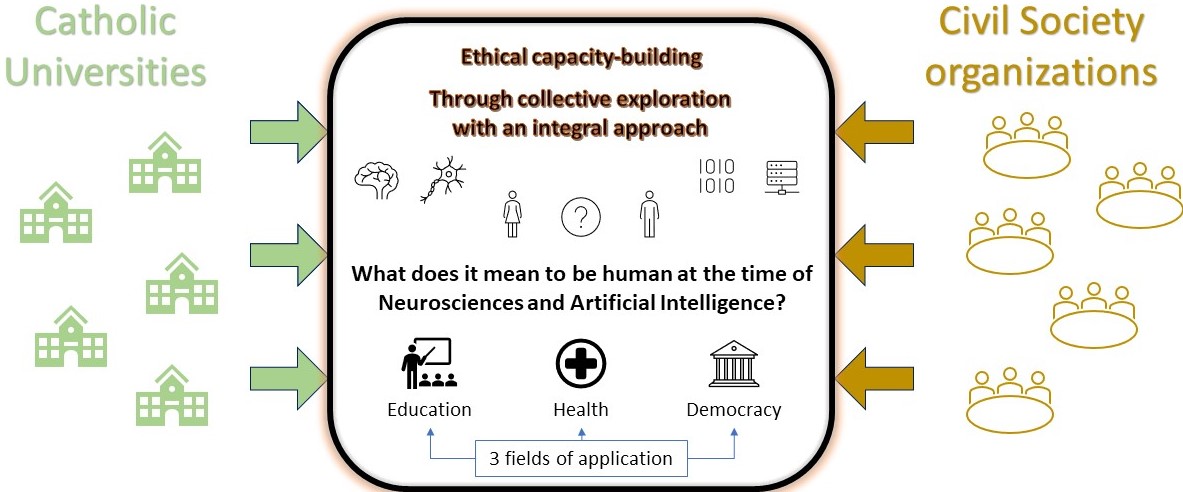
n more practical terms, collective reflection among concerned stakeholders unfolds in two waves, each including 1) face-to-face activities to initiate the reflection (capacity-building workshops), 2) prolonged online with digital debates powered by the original software solution “CartoDEBAT”.
CartoDEBAT is a civic-tech company offering a citizen dialogue platform designed with the help of scientific collaborations during educational projects and environmental R&D studies.
In NHNAI, the platform will be used to harness the first contributions produced during face-to-face workshops (organized in by partnering universities in 8 countries) and give the opportunity to enlarged communities of participants to contribute online to the reflection upon humanism at the time of neurosciences and AI.
The contributions generated during each debate will compose a meaningful corpus. A team of mediator-analysts will analyze this corpus: annotations of extracts with tags or keywords, in order to elaborate a knowledge base on humanism and associated ethical issues at the time of Neurosciences and AI. Principles, rules, clues, and hypothesis could be drawn from the analyzed corpus. All this material harnessed in a bottom-up way from debates in society will contribute to the elaboration and reinforcement of a « collective compass » to help better orientate ourselves at the time of Neurosciences and AI.
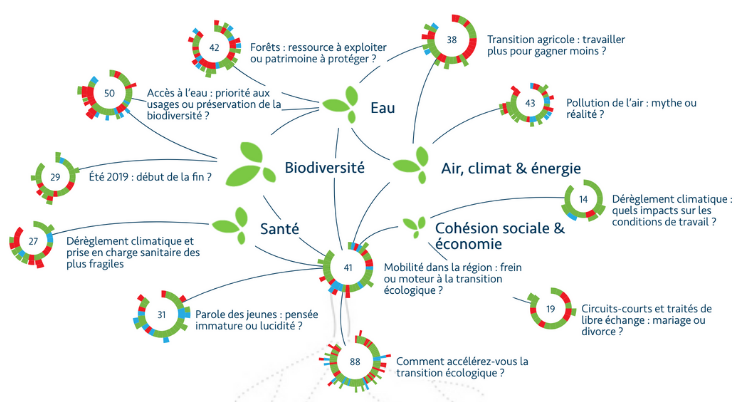
A map of controversies
CartoDEBAT’s platform has been inspired by Jürgen Habermas’ works on ethical debates as well as by Bruno Latour’s views on controversy mapping. The images shows an example elaborated during a debate in France on Urbanism and sustainable development (https://cartodebat.fr/cesergrandest)

